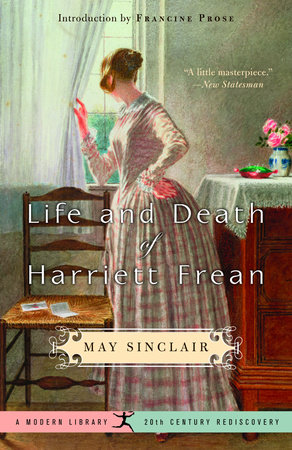Life and Death of Harriett Frean Reader’s Guide
By May Sinclair


1. May Sinclair has been credited with coining the phrase “stream-of-consciousness writing.” How effective is her use of this technique in Life and Death of Harriett Frean?
2. In her Introduction, Francine Prose writes about “the oppressive weight and strength of the chains of family love, of the craving for parental approval.” The example she cites is Mr. Frean’s discussion with Harriett after her forbidden expedition down Black’s Lane. Can you find other examples? What happens to young Harriett’s rebellious streak?
3. Harriett devotes her life to “behaving beautifully.” Which characters in the novel would agree that she had achieved this goal, and which would disagree? Do you think she “behaved beautifully”?
4. The critic Judy Cooke has described this book as “a disturbing analysis of English class and character.” How does Harriett see her own social status in relation to her friends and her servant, Maggie? What happens to the social standing of the Frean family over the course of the novel?
5. The blue egg and red campion are two recurring images throughout the novel. What do you think they symbolize?
6. A year after her mother’s death, Harriett feels “the vague stirring of her individual soul.” What changes does she decide to make? Does she take full advantage of this new opportunity to make her own life choices?
7. According to the scholar Jean Radford, “the new science of psychoanalysis offered [Sinclair] a theory of mental functioning and she drew in particular on the Freudian notions of repression and sublimation.” Can you find evidence of this in Life and Death of Harriett Frean? Consider the characters of Priscilla and Robin, as well as the Freans.
8. Prose writes, “It would be a mistake to assume that lives and deaths like Harriett Frean’s ended with the Victorian era or that some modern version of Harriett’s life isn’t being lived at this very moment.” Do you agree?
Just for joining you’ll get personalized recommendations on your dashboard daily and features only for members.
Find Out More Join Now Sign In